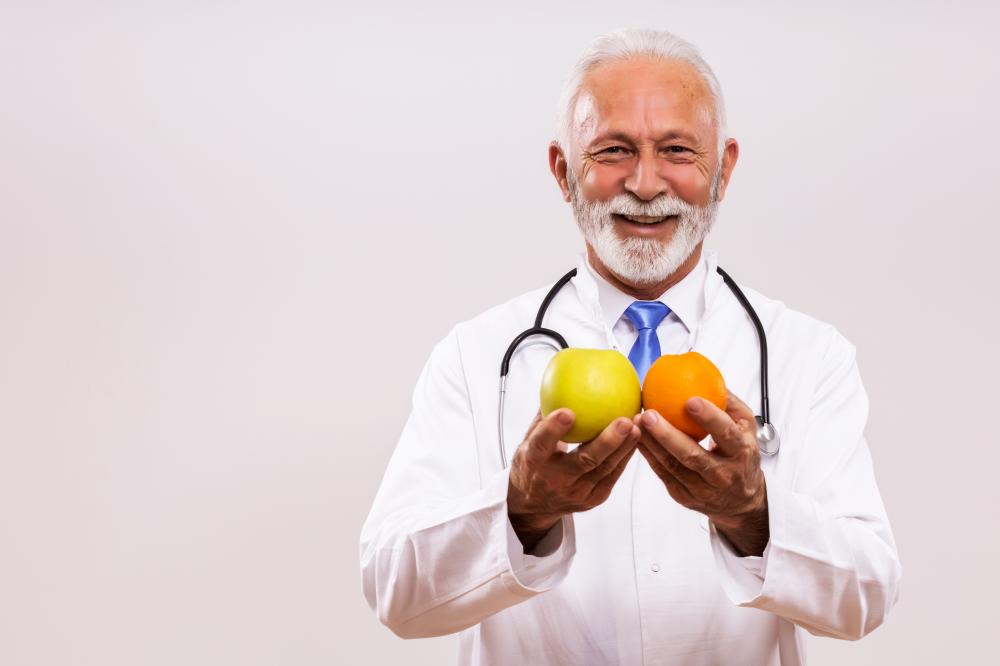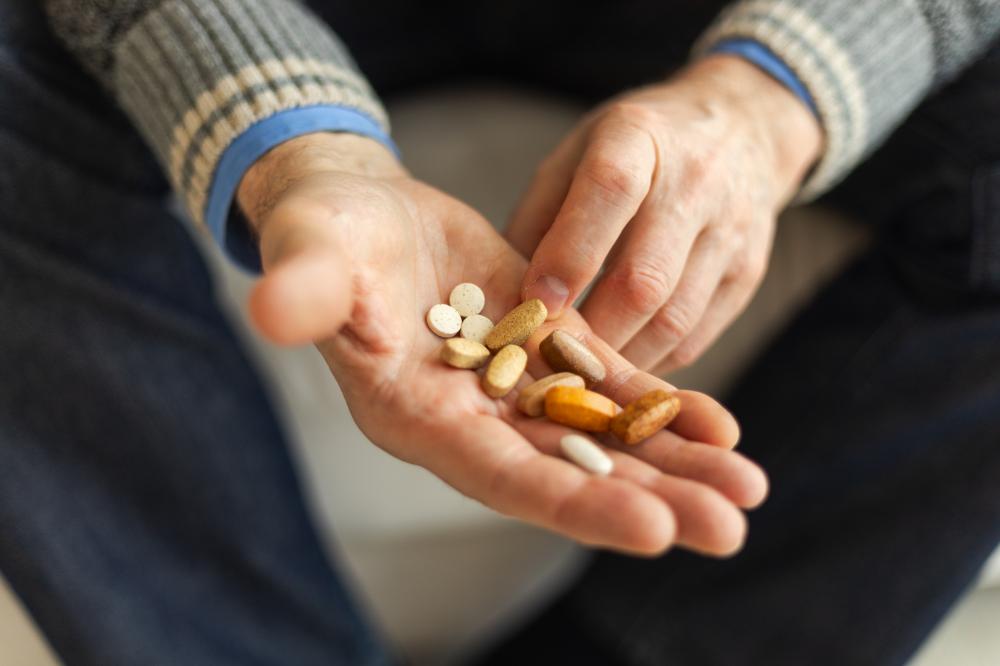Table of Contents
Understanding Prostate Cancer Nutrition

A diagnosis of prostate cancer can turn the world upside down for any individual. As the medical director at Privado Health, I’ve seen firsthand how the right nutritional strategies can serve as a cornerstone for not only managing this disease but also enhancing the efficacy of cutting-edge treatments like Theranostics. Prostate cancer nutrition is about more than just food; it’s about nurturing the body and soul during one of life’s most challenging episodes.
When it comes to prostate cancer nutrition, it’s critical to balance scientific insights with personalized care. Each patient responds uniquely to different dietary approaches, and there’s no one-size-fits-all solution. From our experience at Privado Health, an integrative nutrition plan tailored to individual needs significantly supports prostate cancer therapy.
The Role of Nutrition in Prostate Cancer Care
Eating a diet that supports your body during prostate cancer treatment is vital. It’s not just about curbing the progression of the disease, but it’s also about fortifying the body’s defenses. Simple changes in diet can help manage symptoms and side effects of treatment, improve energy levels, and even potentially slow down the cancer itself.
We always recommend that our patients include a variety of fruits and vegetables in their diets. These foods are rich in antioxidants and phytonutrients that can combat oxidative stress – a known promoter of cancer. A plant-based diet can also help in maintaining a healthy weight, which is essential during and after treatment for prostate cancer.
Individual Nutritional Needs
One of our patients, Alan H., found that adjusting his diet to include more omega-3 fatty acids and cutting down on red meats made a significant difference in his treatment outcome. Alan’s nutritional regimen was designed around his individual health status, treatment regimen, and personal preferences.
For patients undergoing intensive treatments like Chemotherapy, adequate protein intake is non-negotiable. It aids in repair and recovery. Meanwhile, those on hormone therapy may need to adjust their calcium and vitamin D intake to support bone health.
A story that sticks with me is of Matthew C., who struggled with diet changes during his treatment. By working together, our nutritionists at Privado Health designed a palatable, nourishing diet plan that Matthew could adhere to. It made all the difference, not just physically but also in his overall morale.
Navigating Treatment Side Effects
Prostate cancer nutrition isn’t only proactive; it’s reactive. For example, radiation therapy patients might find certain foods less palatable due to altered taste sensations. We help patients like these adjust their meals to include flavorful spices and herbs that can make food more enjoyable and ensure they get the nutrients they need.
Maintaining Balance
Remaining well-hydrated and keeping a balanced plate rich in vitamins and minerals is the key. During sessions at Privado Health, we emphasize the importance of hydration — a simple yet crucial aspect that’s often overlooked during cancer treatment.
We also guide patients on how to integrate moderate physical activity, which works in concert with nutrition to maintain muscle mass and manage weight — both essential during prostate cancer treatment.
At Privado Health, we’ve seen that patients who actively engage in managing their nutrition often feel more in control and resilient. Engaging patients in their nutritional choices empowers them to be active participants in their treatment.
Prostate Cancer Dietary Guidelines
I always tell my patients that while we focus on targeted treatments, let’s not forget the basics. A diet low in saturated fats and high in fruits, vegetables, whole grains, and lean proteins can help reduce inflammation and may lower the risk of prostate cancer progression.
But prostate cancer nutrition isn’t just about avoiding bad fats. It’s equally important to include good fats such as those from avocados, nuts, and olive oil. These can help reduce bad cholesterol levels and provide essential fatty acids that support overall health.
Integrative Nutrition Approach
Diving deeper into prostate cancer nutrition, we at Privado Health highly value an integrative approach. Combining nutritional wisdom with our cutting-edge Theranostics treatments has led to some remarkable outcomes. It’s about treating the whole person, not just the cancer.
We include nutritional workshops as part of our educational outreach, helping patients and their families understand how to cook and eat in a way that supports their treatment and overall well-being. These interactive sessions have been a source of community and inspiration for many who are on a similar journey.
Personalizing Nutrition in Prostate Cancer Care
Every individual’s cancer journey is unique, and so are their nutritional requirements. We recognize this at Privado Health and offer personalized nutritional counseling because we know that prostate cancer nutrition can play a vital role in a patient’s quality of life.
One plan might emphasize certain nutrients over others based on treatment type, while another plan may be structured to help mitigate specific side effects that a patient is experiencing. There’s an art and a science to this, and it’s why our team of nutritionists works closely with each patient and their oncologists to create the most supportive dietary plan possible.

Survivorship and Nutrition
Surviving prostate cancer is a monumental achievement, and maintaining a nutritious diet is crucial for helping survivors thrive in the long term. We’ve found that continuing the good eating habits formed during treatment can lead to sustainable, healthful living post-cancer.
Our survivor patients, like Alan and Matthew, often report feeling more energetic and positive when they maintain their nutritional regimen. They view food as their ally in their ongoing quest for health, and we at Privado Health celebrate every meal that contributes to their vitality and joy.
Concluding Thoughts on Prostate Cancer Nutrition
In sum, prostate cancer nutrition is a multifaceted approach that requires attention to individual needs, side effects, cultural preferences, and lifestyle considerations. At Privado Health, we meld the precision of medical science with the nurturing aspect of food to create a therapeutic environment that supports healing and well-being.
Our dedication to personalized nutrition care is an integral part of our mission to provide holistic support to those battling prostate cancer. By addressing the nutritional aspects of cancer care, we empower our patients to take an active role in their healing process, enhancing the quality of both their treatment and their lives.
If you or a loved one is facing prostate cancer, know that at Privado Health, we’re dedicated not just to treating the disease but nourishing the whole person. Together, we can create a diet and lifestyle plan that supports you every step of the way.

How does nutrition impact the treatment and management of prostate cancer?
At Privado Health, we view nutrition as an empowering tool for those undergoing prostate cancer treatment. A well-curated diet can enhance the body’s ability to cope with the rigors of treatments such as chemotherapy and radiation therapy. By including a variety of antioxidant-rich fruits and vegetables, we aim to bolster the body’s defenses, manage treatment side effects, and potentially slow the cancer’s progression. Adequate protein intake becomes crucial, particularly during chemotherapy, to aid in cellular repair and recovery. Meanwhile, addressing hormone therapy’s effect on bone health involves a careful balance of calcium and vitamin D. By personalizing these nutritional strategies, patients like Alan H. have seen noticeable improvements in their treatment outcomes.
What strategies can help manage the dietary side effects of prostate cancer treatments?
Side effects like altered taste sensations can diminish appetite and enjoyment of food, but we have strategies to counteract that. At Privado Health, we encourage incorporating spices and herbs to enhance flavors and make meals more satisfying. We also focus on maintaining hydration, which is vital yet often overlooked. Nutritional adjustments may be simple, such as introducing soothing, nutrient-dense foods for those experiencing gastrointestinal discomfort. It’s about creating a palatable and nourishing diet plan that patients like Matthew C. can adhere to, which can significantly boost both physical well-being and morale.
What are the general nutritional guidelines for someone with prostate cancer?
I advise my patients to adhere to a diet low in saturated fats and high in fruits, vegetables, whole grains, and lean proteins. This dietary composition helps reduce inflammation, which may lower the risk of prostate cancer progression. It’s also essential to incorporate good fats, found in avocados, nuts, and olive oil, which contribute to lowering bad cholesterol levels and provide essential fatty acids. This approach is foundational, even as we explore more personalized nutrition plans tailored to individual health statuses and preferences.
Can you elaborate on the integrative nutrition approach used at Privado Health?
Our integrative nutrition approach is about combining dietary wisdom with our advanced Theranostics treatments, which can lead to remarkable outcomes. It treats the whole person, considering their medical needs, lifestyle, and cultural preferences. Incorporating nutrition workshops into our educational outreach, we empower our patients and their families with knowledge on how to support their treatment and overall well-being through diet. This holistic strategy underpins our philosophy that food is an integral part of the healing journey.
How does nutrition play a role in the survivorship of prostate cancer?
Surviving prostate cancer is a remarkable milestone, and maintaining a nutritious diet is imperative for long-term well-being. The healthy eating habits developed during treatment should continue into survivorship to sustain healthful living. Our patients, including Alan and Matthew, often report increased energy and positivity when they maintain their nutrition regimen. They see food as an ally in their health journey, and we celebrate each meal that contributes to their vitality and joy. The role of diet is not only preventive but also supportive, encouraging ongoing health and wellness post-treatment.
Resources for Prostate Cancer Nutrition
- National Cancer Institute – Prostate Cancer, Nutrition, and Dietary Supplements: This page provides detailed information on nutrition and dietary supplements that may be relevant for patients with prostate cancer. Visit resource
- American Cancer Society – Nutrition for People With Cancer: A helpful guide for cancer patients to understand the importance of nutrition during and after cancer treatment. Visit resource
- Prostate Cancer Foundation – Nutrition & Wellness: Provides an overview of nutrition tips, guides, and recipes recommended for prostate cancer patients. Visit resource
- Mayo Clinic – Prostate Cancer Nutrition Tips: Offers insights into how nutrition can affect prostate cancer, with tips on what to eat and avoid. Visit resource
- Academy of Nutrition and Dietetics – Oncology Nutrition: A specialized group of dietitians sharing evidence-based nutrition information for cancer patients, including those with prostate cancer. Visit resource
- Harvard T.H. Chan School of Public Health – The Nutrition Source: An expert-led resource that includes information on healthy eating plates, nutrition’s role in disease prevention, and more. Visit resource
- U.S. Department of Agriculture – MyPlate: Official nutritional guide based on the Dietary Guidelines for Americans, which can aid in making better food choices. Visit resource
- National Institutes of Health – Office of Dietary Supplements – Vitamin and Mineral Supplement Fact Sheets: Provides scientifically-based fact sheets on various vitamins and minerals, including their role in health. Visit resource
